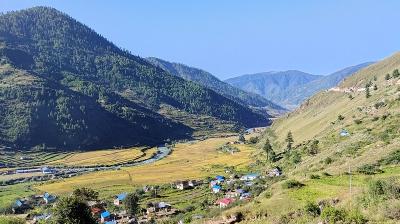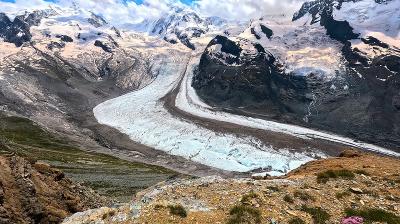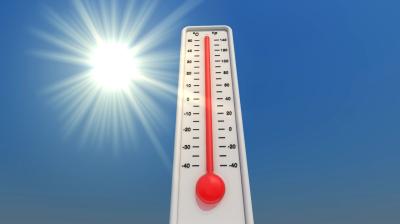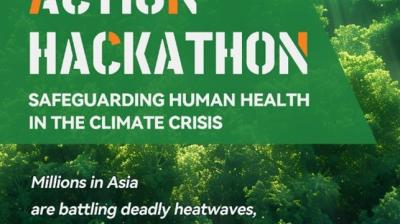WMO showcases climate initiatives in Latin America and Caribbean
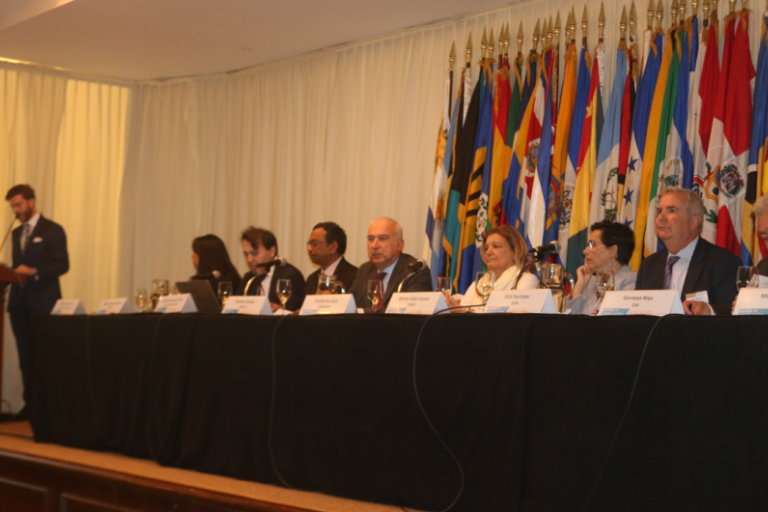
At the Latin American and Caribbean Climate Week, WMO showcased its observations-based tools to identify greenhouse gas sources and support emission reductions, as well as activities to build resilience to the impacts of climate change.
The event, which included the Carbon Forum, took place in Montevideo, Uruguay, from 20 to 23 August. It was co-organized by a partnership comprising UN agencies, multilateral banks, a regional energy organization and a private sector association, and was sponsored by the UN Framework Convention on Climate Change (UNFCCC). It featured a high-level segment with UNFCCC Executive Secretary, Patricia Espinosa, Brazil’s Minister of Environment, Edson Duarte; and Uruguay’s Minister of Housing, Territorial Planning and Environment, Eneida de León.
Implementation of the Paris Agreement on climate change requires national and sub-national entities to take actions to reduce greenhouse gas emissions (GHG) to keep temperature increases by the end of the century to well under 2° Celsius above the pre-industrial era.
WMO held a side event on its Integrated Global Greenhouse Gas Information System (IG3IS), which employs cutting edge science to establish the source of greenhouse gases and so inform efforts to reduce emissions.
"Observations-based tools provide new additional information on the emissions and have great potential to support the transparency mechanism of the Paris agreement. They also allow us to identify mitigation opportunities which would not otherwise have been discovered,” said Oksana Tarasova, Chief of the WMO’s Global Atmosphere Watch Programme (GAW) that hosts IG3IS.
The WMO side event made a strong case for scientific support services for carbon reduction policies both nationally and sub-nationally in the Latin American region. In relation to the carbon market that the Latin American region is seeking to develop, Ms Tarasova explained that “For a successful carbon market solution, it is crucial that the amount of carbon is objectively and scientifically assessed, and WMO takes a leadership in the development and promotion of the innovative approaches for such assessments." she said.
To assist the key stakeholders of Recife in Brazil to reduce their carbon footprint, the CarboCountCity project measures carbon emissions associated with the city. Paulo Roberto Silva, President Advisor of Agencia Estadual de Meio, highlighted how policymakers in Recife and other cities would benefit from the services provided by IG3IS.
Marcelo Mena, Practice Manager at the World Bank, emphasized the co-benefits of combined climate and air quality policies. He discussed various policy instruments that have successfully reduced both carbon dioxide and particulate emissions, thus also decreasing air pollution and increasing public health.
 WMO also provides support to National Meteorological Services (NMHNs) in the region through the Regional Climate Centres (RCCs) for early warning systems, risk management and adaptation plans. Barbara Tapia and Rodney Martinez, experts of the WMO Commission for Climatology, presented such services which include online risk maps that are increasingly used by national and local authorities in the region.
WMO also provides support to National Meteorological Services (NMHNs) in the region through the Regional Climate Centres (RCCs) for early warning systems, risk management and adaptation plans. Barbara Tapia and Rodney Martinez, experts of the WMO Commission for Climatology, presented such services which include online risk maps that are increasingly used by national and local authorities in the region.
They also announced two planned new projects to help build resilience. A EUROCLIMA project entitled: Regional and National Monitoring and Risk Management systems for droughts and floods in a climate change and desertification context in the Andean region. The second projected has been submitted by WMO to the Adaptation Fund: Enhancing Adaptive Capacity of Andean Communities through Climate Services (ENANDES).
UNFCCC is promoting regional Climate Weeks to bring local actors together to strengthen climate action.
“By tackling climate change we can tackle more than just the weather. We can address more than just numbers and statistics. We can create a better world. That’s why this Climate Week is so important. It’s a chance for us to hear about the challenges actors face and the specific work being done here to address them; solutions that might be applicable elsewhere,” said Ms Espinosa.
UNFCCC press release here


